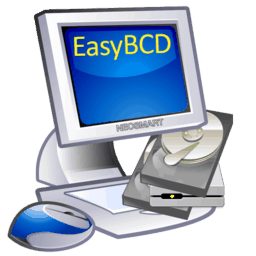One of the biggest, bestest, and most-hyped features of Windows Vista (according to Microsoft, that is) was the brand spanking new TCP/IP networking stack. Ask us, it sucks. Network performance hasn’t improved any over the ancient stack used in XP (nor should it – it’s not like there’s anything new in IPv4) though it does add better IPv6 support out-of-the-box and ships with some even more functionality in Windows 7. But more importantly, Microsoft threw out decades of testing and quality assurance work on the existing Networking Stack and replaced it with something rather questionable.
We’ll be following up some more on this topic from a technical side later in another article, but for now, an example that most of you are sure to have come across if you’ve ever tried to map network drives before:

This popup is shown at system startup if you have any mapped network drives to UNC shares which are not protected with a username and password. If you map a network destination that does require authentication, Windows will map the drive OK. To further complicate matters: this message is shown only when you startup from a cold boot! If you restart your PC (vs shutdown and powerup), it won’t appear.
Resolving the issue is straight-forward enough: just double-click on the network drive in My Computer and it’ll automatically, instantly, and silently connect. Which makes one wonder why Windows couldn’t connect in the first place.
Good question.





 If you were to believe the latest headlines at Business Insider, Android is a fragmented mobile platform and has a negative effect on the applications, for developers and end-users alike. Android is currently in a heated battle with the other two big names in mobile technology (the iPhone and the BlackBerry being the other two), and this is a serious matter definitely worthy of discussion.
If you were to believe the latest headlines at Business Insider, Android is a fragmented mobile platform and has a negative effect on the applications, for developers and end-users alike. Android is currently in a heated battle with the other two big names in mobile technology (the iPhone and the BlackBerry being the other two), and this is a serious matter definitely worthy of discussion. A lot of people have been asking where I’ve been the past several months: why the blog has been void of updates, why EasyBCD 2.0 is taking so long, why the image gallery still hasn’t been properly updated, and so on and so forth. With university was over and done with, I was supposed to have more time on my hands to dedicate to NeoSmart Technologies. If I had to point the finger of blame, it would rest squarely on
A lot of people have been asking where I’ve been the past several months: why the blog has been void of updates, why EasyBCD 2.0 is taking so long, why the image gallery still hasn’t been properly updated, and so on and so forth. With university was over and done with, I was supposed to have more time on my hands to dedicate to NeoSmart Technologies. If I had to point the finger of blame, it would rest squarely on